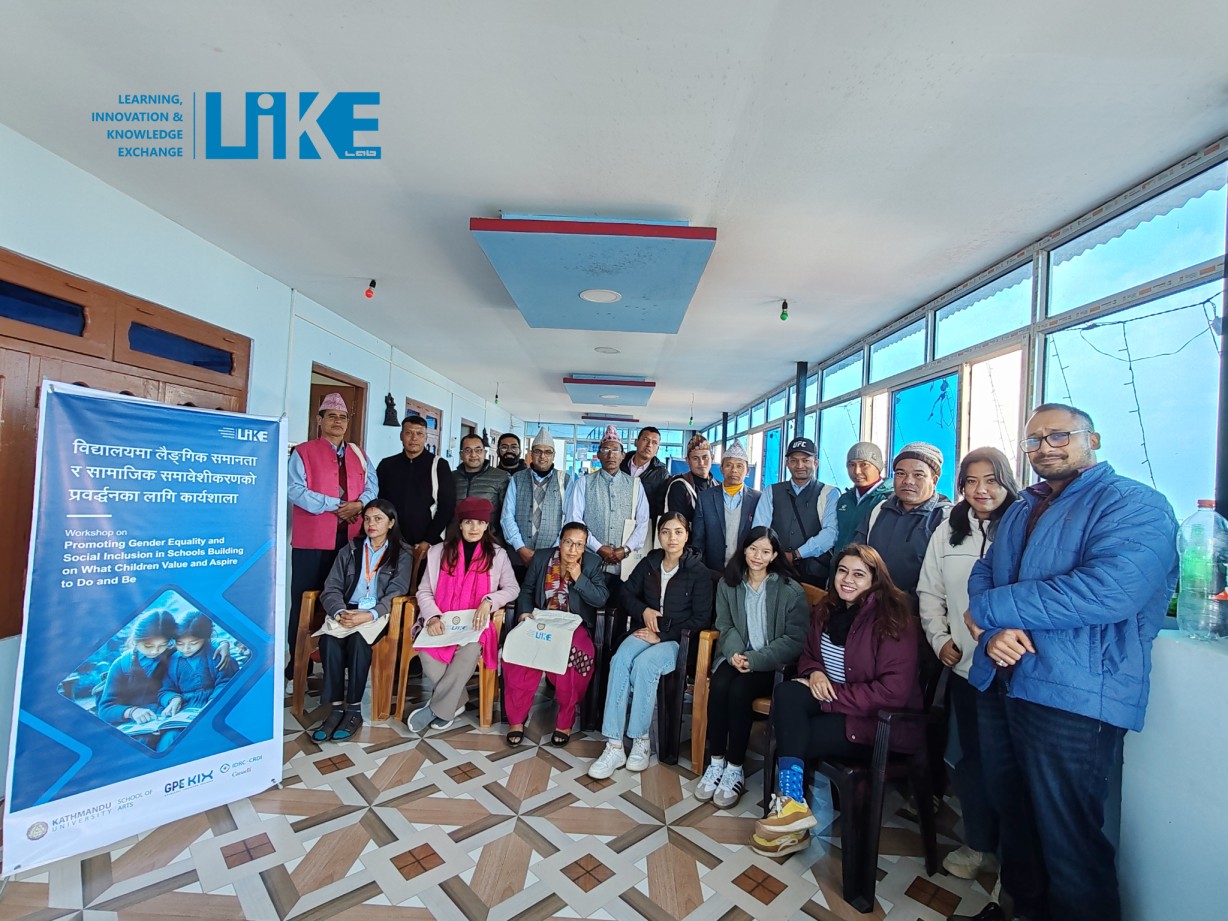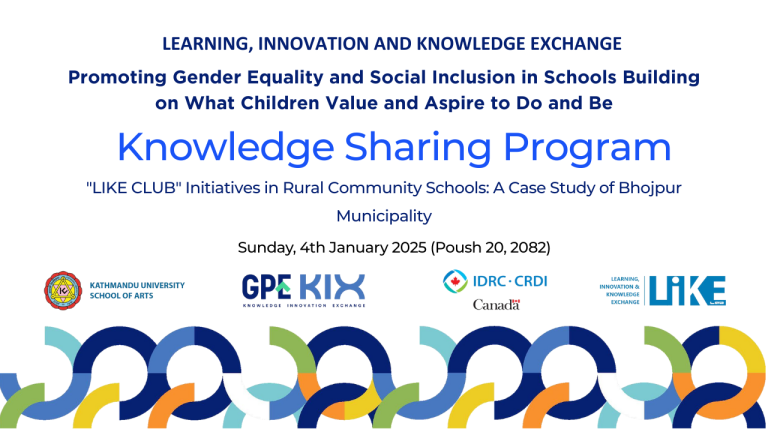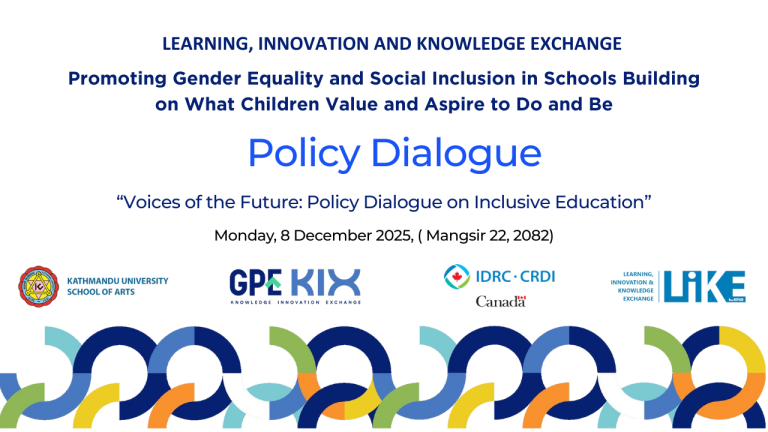
BHOJPUR, NEPAL, NOVEMBER 26, 2024 – Day 2 of the Knowledge Sharing Event and “Participatory Appraisal for Selecting Capability List and Understanding GESI Related Capabilities” activity brought together 13 Gender Equality and Social Inclusion (GESI) focal persons from 13 community schools engaged with the project.
The primary aim of the activity was to:
- Disseminate knowledge about the current state of GESI in schools, based on insights from Focus Group Discussions (FGDs) conducted with students.
- Analyze the workshop data collected from the GESI focal persons themselves.
- Equip participants with tools and strategies to foster GESI in their respective schools.
The session began with a ‘Meet with GESI Focal Points’, focusing on sharing findings from FGDs with students, highlighting their perceptions, challenges, and aspirations regarding GESI followed by presenting an analysis of workshop data, which reflected the focal persons’ understanding of GESI and their schools’ progress toward inclusion. A participatory approach was adopted to facilitate stakeholder mapping at the school level, identifying key actors and their roles in advancing GESI and engaging focal persons in selecting and prioritizing capabilities aligned with GESI goals for their schools.
The discussion culminated into a brainstorming session to develop actionable activities that schools could implement. Key suggestions included:
- Dissemination of Materials: Provide schools with materials explaining 21 key GESI indicators to enhance understanding and application.
- Student-Led Initiatives: Encourage students to give speeches during assemblies on topics related to GESI indicators, fostering awareness and peer learning.
- Monthly Activities: Plan two activities each month, such as debate competitions or quizzes, to promote active engagement with GESI themes.
- Social Media Utilization: Use platforms like Facebook and YouTube to share flyers, brochures, and videos to raise awareness about GESI initiatives.
- Interactive Dramas: Organize dramas focusing on individual GESI indicators in each school and provide ready-made scripts and conduct GESI training sessions to ensure impactful performances.
This session for schools to adopt targeted strategies to promote GESI, encouraging collaboration between students, teachers, and stakeholders. This event marked a step in translating the project’s vision into actionable outcomes, ensuring schools become spaces where diversity is celebrated, and every child’s potential is nurtured. The participants were equipped with both knowledge and practical ideas to implement activities fostering inclusivity and equality. Moving forward, the project plans to provide continuous support and monitor the schools’ progress in applying the suggested activities.



